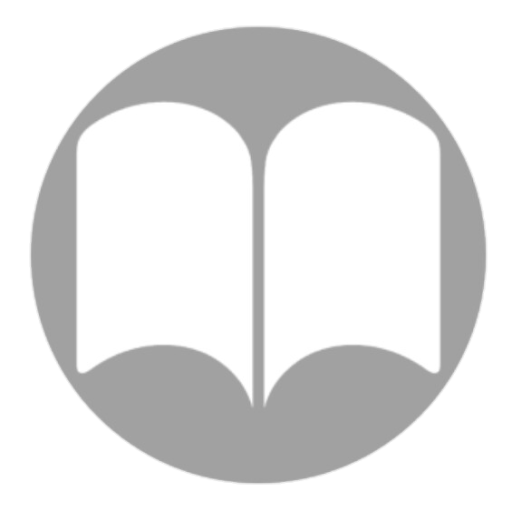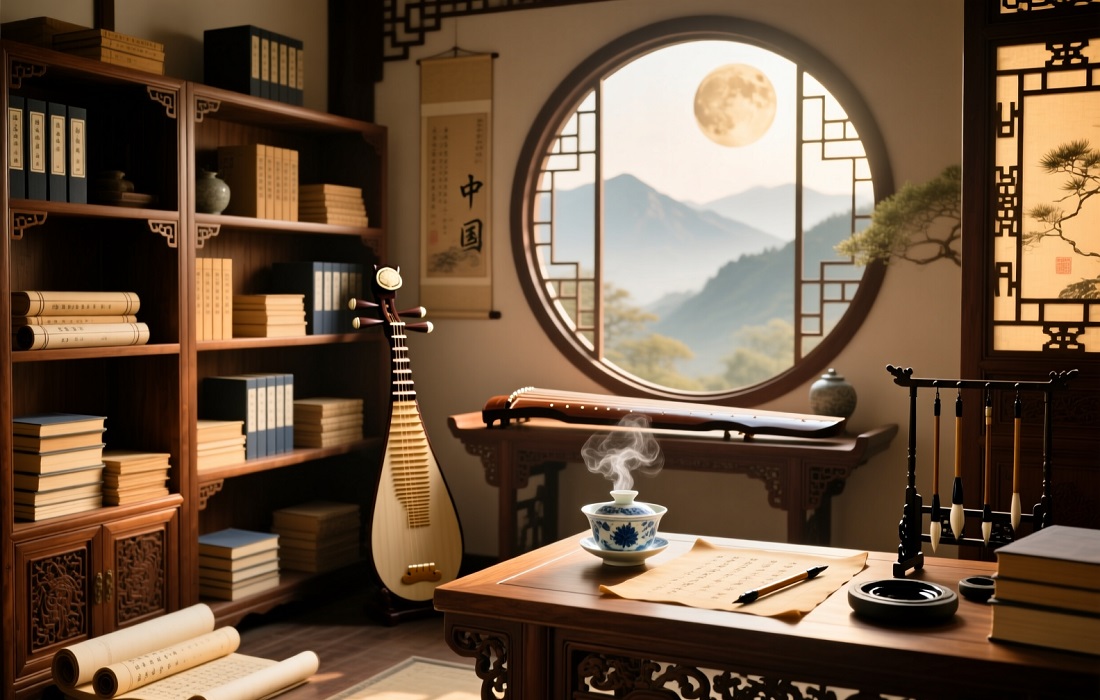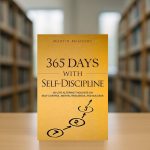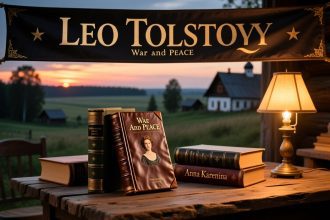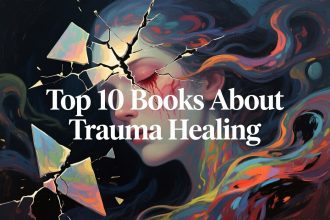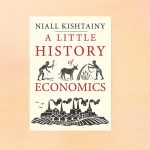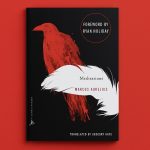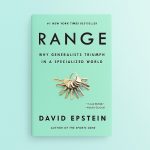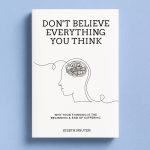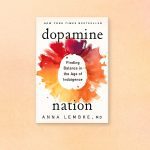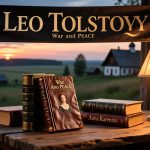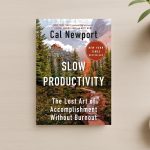Chinese literature, with over three millennia of history, is one of the world’s richest and most enduring traditions. It spans ancient philosophical treatises, sprawling historical epics, lyrical poetry, satirical allegories, and modern social commentaries. Chinese authors have grappled with universal themes-love, loyalty, morality, injustice-while capturing the unique rhythms of Chinese society, from dynastic courts to rural villages. This list of Top 10 Books from China presents a blend of classical and modern works, offering not just stories but windows into a civilization’s soul.
Top 10 Books from China
1. Dream of the Red Chamber by Cao Xueqin
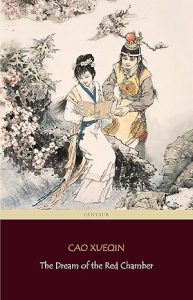
Written in the mid‑18th century, Dream of the Red Chamber (also The Story of the Stone) is considered one of China’s Four Great Classical Novels. This semi‑autobiographical masterpiece follows the decline of the aristocratic Jia family through the eyes of young heir Jia Baoyu, whose sensitivity and romantic soul clash with a rigid Confucian order. At its heart is Baoyu’s poignant love for his cousin Lin Daiyu, a relationship shadowed by duty and fate. Beyond romance, Cao’s narrative offers a vast panorama of Qing‑dynasty social life-its opulence, rituals, and hypocrisies-with hundreds of vividly drawn characters. The novel’s rich allegory, poetry, and philosophical undercurrents make it a treasure trove of cultural insight. Its enduring appeal lies in its humanity: how love, loss, and disillusionment touch every class and generation.
2. Water Margin by Attributed to Shi Nai’an
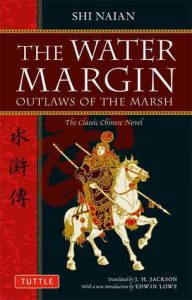
Set in the Song dynasty, Water Margin (Outlaws of the Marsh) tells the story of 108 outlaws who gather at Liangshan Marsh, rebelling against corrupt officials and fighting for justice. The characters range from noble warriors to reformed criminals, bound by loyalty and brotherhood. Their exploits are action‑packed-battles, rescues, cunning stratagems-but also explore moral ambiguity: the line between hero and outlaw blurs. Often humorous, sometimes tragic, the novel reflects both disdain for oppressive authority and admiration for personal honor. As with many Chinese epics, it fuses historical fact and folklore into a saga of camaraderie, defiance, and the cost of rebellion.
3. Romance of the Three Kingdoms by Luo Guanzhong
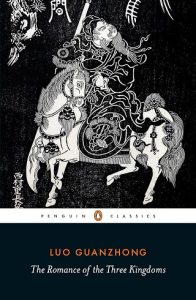
Among China’s most famous historical epics, Romance of the Three Kingdoms dramatizes the turbulent Three Kingdoms period (AD 220–280). It follows warlords like Liu Bei, Cao Cao, and Sun Quan in their struggle for supremacy after the fall of the Han dynasty. Featuring legendary figures-Zhuge Liang, Guan Yu-it blends meticulous history with imaginative storytelling. Themes of loyalty, strategy, and fate dominate, with military campaigns, political intrigue, and legendary duels. It’s as much a meditation on power’s transience as a thrilling chronicle of heroism.
4. Journey to the West by Wu Cheng’en
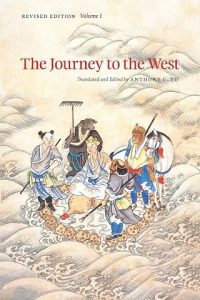
This beloved Ming‑dynasty classic tells of the monk Xuanzang’s pilgrimage to India, accompanied by the mischievous and powerful Monkey King, Sun Wukong, along with Pigsy and Sandy. Combining myth, humor, and spiritual allegory, the tale blends Buddhist, Taoist, and Confucian elements. Each fantastical trial mirrors moral and spiritual challenges, making it both entertaining and profound. The Monkey King’s rebellious wit and eventual enlightenment embody the balance between freedom and discipline.
5. The Art of War by Sun Tzu
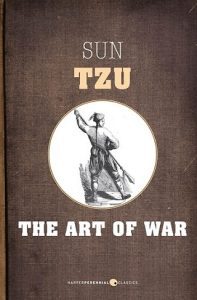
A succinct yet profound military treatise from the 5th century BC, The Art of War distills strategy, leadership, and psychological insight into aphoristic chapters. Though rooted in warfare, its principles-know your enemy, know yourself; win without fighting-are applied in politics, business, and personal growth worldwide. Its enduring influence lies in its clarity, adaptability, and emphasis on intelligence, timing, and flexibility over brute force.
+ Book Summary of The Art Of War by Sun Tzu
6. Strange Stories from a Chinese Studio by Pu Songling
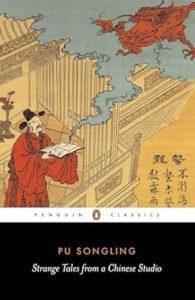
This 17th‑century collection of nearly 500 short tales mixes ghost stories, moral parables, and social satire. Fox spirits, scholars, and bureaucrats populate Pu’s world, where supernatural encounters often critique greed, vanity, or injustice. Written in classical Chinese, the tales’ elegance and wit have inspired countless adaptations in opera, film, and art.
7. Fortress Besieged by Qian Zhongshu
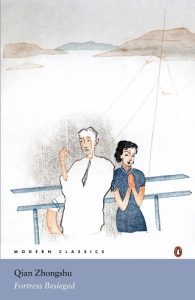
A satirical novel published in 1947, it follows Fang Hongjian, a Chinese student returning from abroad with a fake degree, navigating professional and romantic misadventures. The “fortress” is marriage itself-desirable from outside, stifling within. With biting humor and keen observation, Qian skewers intellectual pretension, modern urban life, and human folly during a transitional era in China’s history.
8. Rickshaw Boy by Lao She
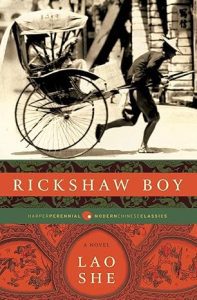
Published in 1937, Rickshaw Boy tells of Xiangzi, a hardworking rickshaw puller in Beijing whose dreams of independence are crushed by poverty, exploitation, and misfortune. Lao She’s realist style vividly portrays 1930s urban hardship, critiquing social inequality and the illusion of meritocracy. The novel’s tragic arc underscores the resilience and vulnerability of the working poor.
9. To Live by Yu Hua
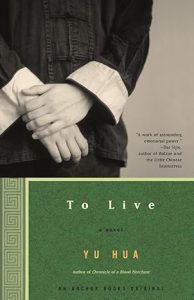
A modern classic (1993), To Live follows Fugui, a once‑wealthy man who loses everything during mid‑20th‑century upheavals in China. Through famine, war, and political campaigns, he endures immense personal loss yet finds dignity in survival. Stripped of sentimentality, Yu’s narrative finds humanity in suffering and small acts of kindness. Translated widely, it has become an international touchstone for resilience under historical trauma.
10. The Three-Body Problem by Liu Cixin
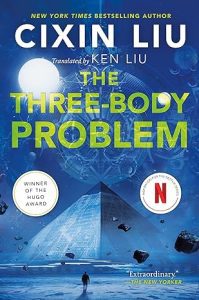
This award‑winning 2008 science fiction novel launches an ambitious trilogy exploring first contact with extraterrestrials. Against the backdrop of China’s Cultural Revolution, scientists transmit signals into space, sparking consequences across centuries. Blending hard science, political history, and cosmic philosophy, Liu redefines Chinese SF on the global stage. Themes of trust, existential risk, and humanity’s place in the universe resonate far beyond its genre origins.
Conclusion: Top 10 Books from China
From Ming‑dynasty adventures to modern science fiction, Chinese literature offers a panorama of human experience-heroism, folly, endurance, and hope-filtered through a distinctly Chinese lens. These ten works not only entertain but also preserve and question the values, struggles, and aspirations of one of the world’s oldest civilizations. Reading them is an invitation to walk through time, from ancient battlefields to future galaxies, guided by storytellers whose voices stretch across centuries.
